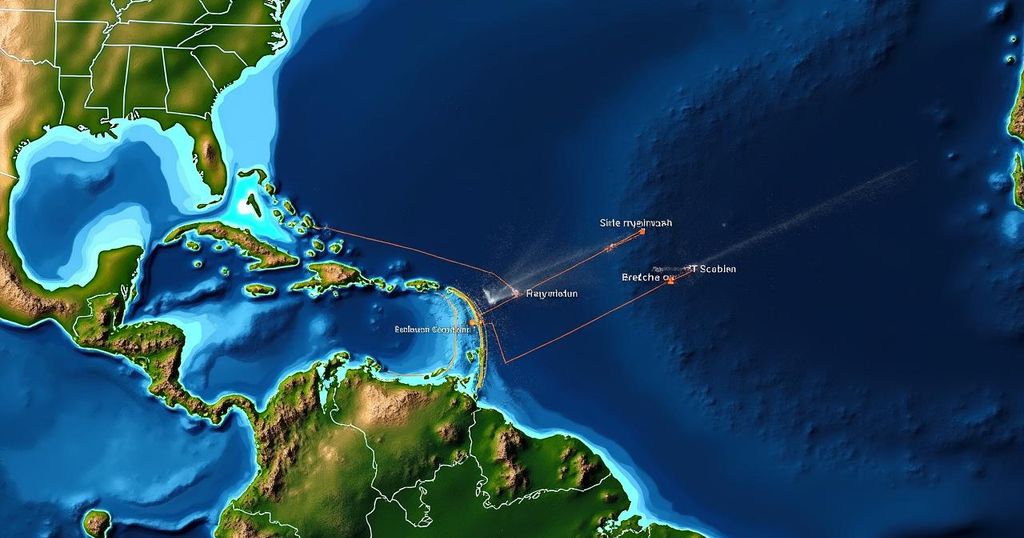Current Update on Tropical Storm Leslie and Atlantic Weather Systems
The National Hurricane Center is tracking Tropical Storm Leslie, which is located far out in the Atlantic, along with a tropical wave near the Cabo Verde Islands. Leslie is expected to weaken and transition to a post-tropical cyclone, while the wave may develop briefly before conditions become less favorable.
On Friday, the National Hurricane Center was actively monitoring two systems in the Atlantic Ocean: Tropical Storm Leslie and a tropical wave near the Cabo Verde Islands. Despite recent weather impacts on Florida and the Southeastern regions from Hurricanes Milton and Helene, neither of these systems poses an imminent threat to land. Tropical Storm Leslie was located approximately 1,635 miles west of the Azores, with maximum sustained winds reported at 60 mph and a movement toward the west-northwest at 10 mph. According to the latest advisory at 5 a.m. ET, Leslie is anticipated to shift toward the north-northeast later in the day, subsequently turning northeast with an increase in speed through the weekend. The storm is projected to weaken gradually over the next few days, ultimately transforming into a post-tropical cyclone. Tropical-storm-force winds currently extend up to 80 miles from Leslie’s center. In addition, satellite imagery suggests that a low-pressure area over the southwestern portion of the Cabo Verde Islands, designated as Eastern Tropical Atlantic (AL94), is experiencing some shower and thunderstorm activity to the east of its low-level center. Although there remains a medium potential for this system to develop into a tropical depression or storm as it progresses westward at 10 to 15 mph, forecast conditions indicate a decrease in development prospects over the coming days. The National Hurricane Center is set to issue the next advisory regarding Tropical Storm Leslie at 11 a.m. ET on Friday. As a reminder, the Atlantic hurricane season spans from June 1 to November 30, with the upcoming season names including Alberto, Beryl, Chris, and several others.
The Atlantic hurricane season is a key period that runs annually from June 1 to November 30, characterized by tropical storm and hurricane activity in the Atlantic basin. During this season, meteorological agencies such as the National Hurricane Center (NHC) continuously monitor various weather systems for potential development into tropical cyclones. Tropical Storm Leslie and the area of low-pressure near the Cabo Verde Islands represent typical phenomena during this season, as conditions in the Atlantic can fluctuate, leading to the formation of storms that may impact the region.
In summary, Tropical Storm Leslie is actively being tracked in the Atlantic, with expectations of weakening in the forthcoming days. A tropical wave near the Cabo Verde Islands may see some limited development, but prospects are dwindling. The continuous monitoring by the National Hurricane Center serves as a vital resource to keep the public informed during the hurricane season, which runs from June to November.
Original Source: www.heraldtribune.com




Post Comment